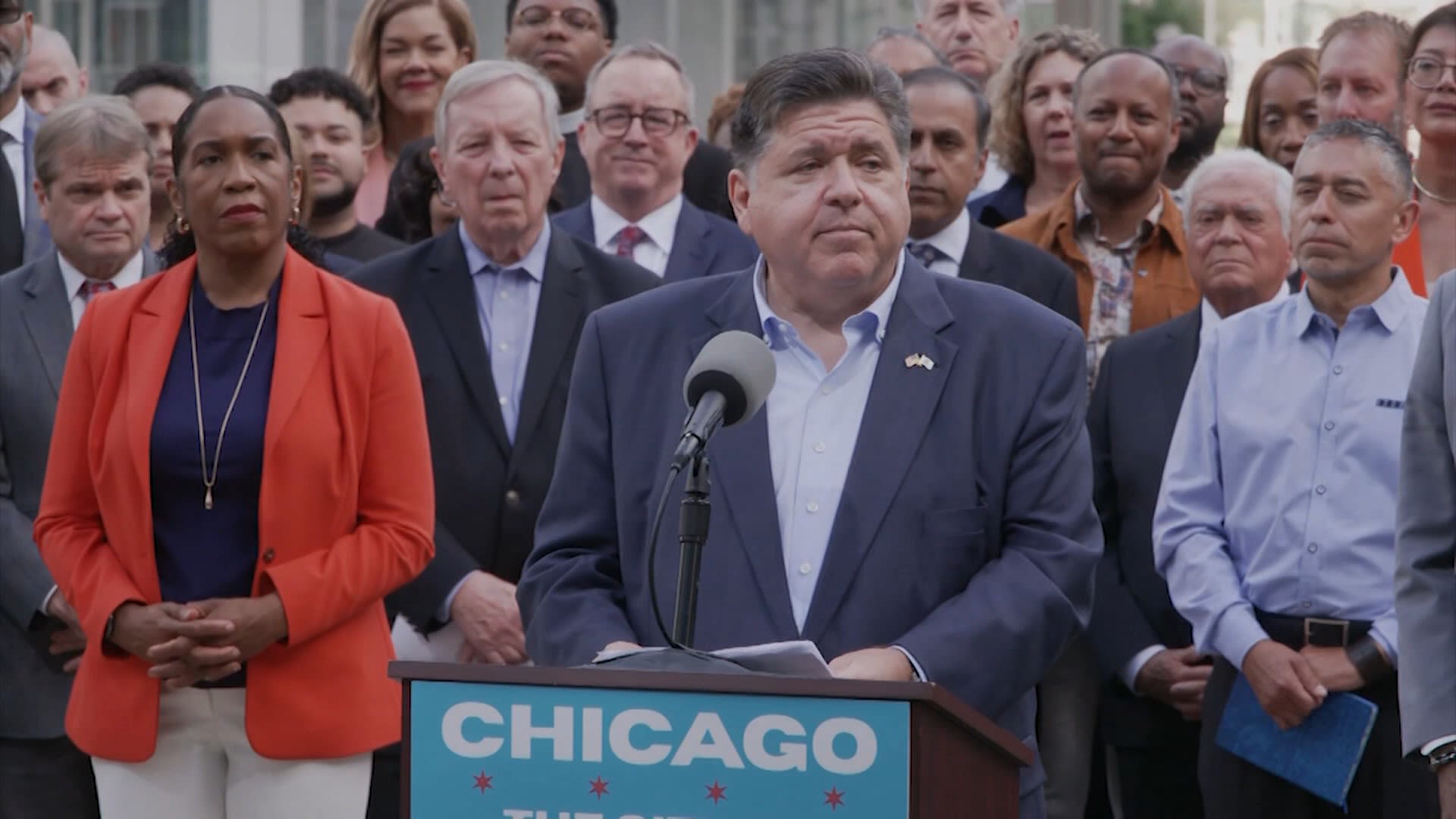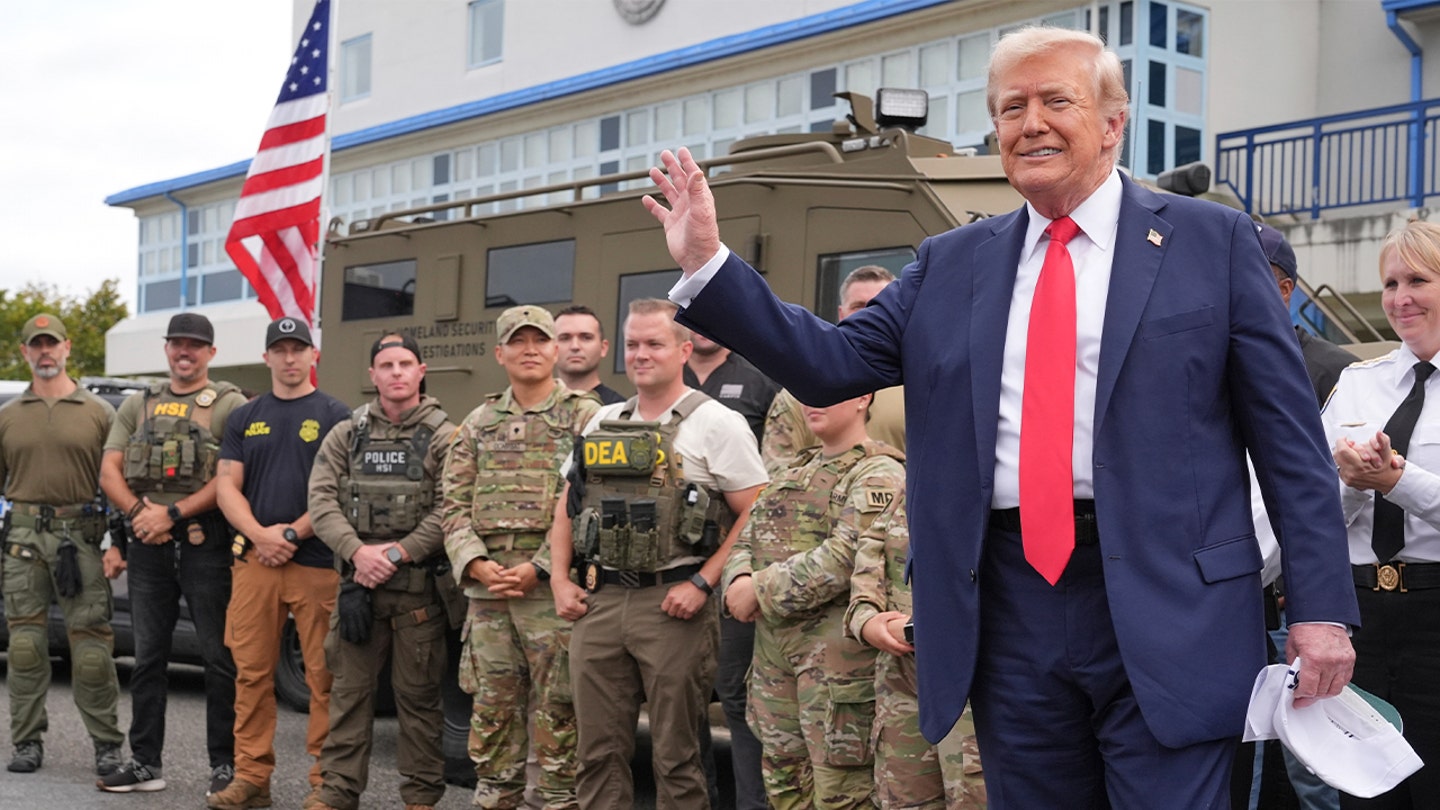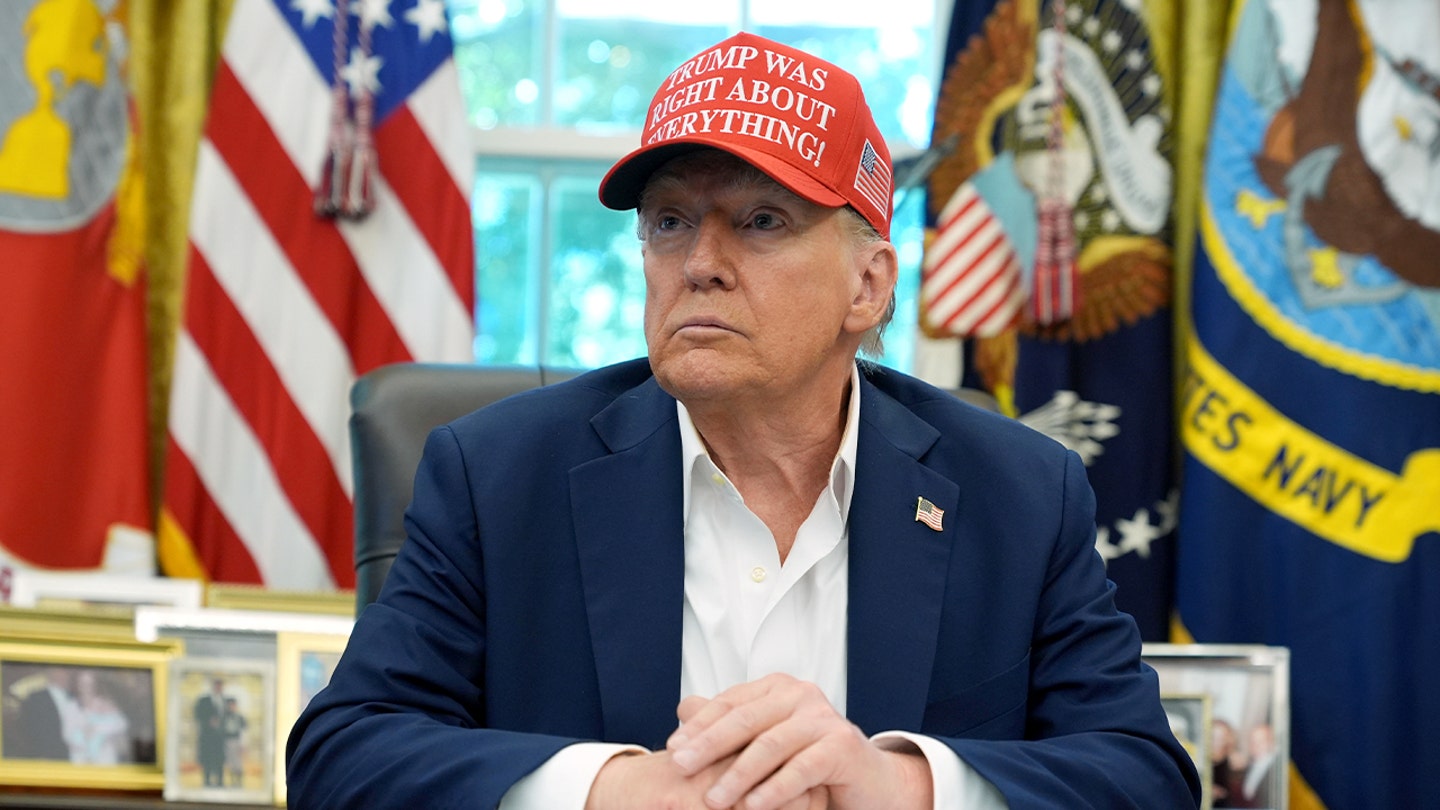
Argentina-Puerto Rico soccer match relocated from Chicago to Florida amid immigration unrest
Entities mentioned:
- Argentina National Soccer Team: Competitive spirit, Pride, Professional pride
- Chicago City Government: Security, Control, Anxiety
- Donald Trump: Power, Moral outrage, Influence
- Brandon Johnson: Self-preservation, Righteousness, Determination
- JB Pritzker: Justice, Indignation, Duty
- ICE: Duty, Control, Security
Article Assessment:
Credibility Score: 65/100
Bias Rating: 55/100 (Center)
Sentiment Score: 30/100
Authoritarianism Risk: 45/100 (Mixed/Neutral)
Bias Analysis:
The article presents multiple perspectives, including government officials and opposition views. However, it leans slightly right by emphasizing immigration enforcement and quoting Trump's controversial statements.
Key metric: Immigration Enforcement Effectiveness
Let me tell you something, folks - this immigration showdown in Chicago is turning into a real slugfest! We've got teams switching venues faster than a last-minute audible, with Argentina and Puerto Rico calling an audible and relocating their match to Florida. Talk about a game-changing play! The Windy City's defense is struggling, with protesters blitzing ICE agents like they're trying to sack the quarterback. Meanwhile, Trump is calling for a red card on Chicago's mayor and Illinois' governor, accusing them of playing defense for the wrong team. This is RIDICULOUS! We're seeing a full-court press from the feds, bringing in the National Guard like they're subbing in the special teams unit. I'm telling you right now, this is fourth-quarter action with huge implications for the championship of immigration policy. Both sides are digging deep, showing true grit and determination. It's a battle of wills out there, and neither team is backing down!

Following LA and DC, Trump wants to send the National Guard to other US cities. Here’s how he can do it
Entities mentioned:
- Donald Trump: Power, Control, Influence
- Elizabeth Goitein: Justice, Duty, Professional pride
- Brandon Johnson: Righteousness, Duty, Indignation
- JB Pritzker: Righteousness, Duty, Indignation
- David Janovsky: Professional pride, Duty, Wariness
- Pam Bondi: Loyalty, Control, Influence
- Gavin Newsom: Righteousness, Duty, Self-preservation
Article Assessment:
Credibility Score: 75/100
Bias Rating: 40/100 (Lean Left)
Sentiment Score: 30/100
Authoritarianism Risk: 65/100 (Authoritarian Tendencies)
Bias Analysis:
The article leans slightly left, giving more space to critics of Trump's actions and framing the issue as a potential overreach of presidential power. However, it does include multiple perspectives and cites legal justifications for Trump's actions.
Key metric: Civil Liberties Protection Index
As a social scientist, I analyze that this article highlights a significant tension between federal and state powers, particularly concerning the use of military forces for domestic law enforcement. The proposed actions by the Trump administration represent a potential shift in the balance of power, raising concerns about civil liberties and the traditional separation of military and police functions. This situation could have far-reaching implications for federalism, constitutional interpretation, and the scope of presidential authority in domestic affairs. The legal challenges and pushback from state and local officials underscore the complexity of these issues and the potential for a constitutional crisis if federal forces are deployed against the wishes of state governments.

‘Military occupation’: Chicago mayor responds to Trump signaling he might send National Guard to the city
Entities mentioned:
- Brandon Johnson: Righteousness, Duty, Self-respect
- Donald Trump: Power, Control, Influence
- Anderson Cooper: Professional pride, Curiosity, Duty
- National Guard: Duty, Security, Control
Article Assessment:
Credibility Score: 70/100
Bias Rating: 45/100 (Center)
Sentiment Score: 35/100
Authoritarianism Risk: 55/100 (Mixed/Neutral)
Bias Analysis:
The article presents both sides of the issue by including the mayor's response and Trump's actions. However, the use of the term 'military occupation' in the headline may slightly frame the issue from the mayor's perspective.
Key metric: Public Safety and Crime Rate
As a social scientist, I analyze that this article highlights a potential conflict between federal and local authorities over crime control measures. The use of terms like 'military occupation' by the Chicago mayor suggests strong opposition to federal intervention, indicating a clash between local autonomy and centralized power. This situation could impact public safety metrics by either increasing law enforcement presence or creating tension that might exacerbate existing issues. The article raises questions about the effectiveness and appropriateness of using military-style interventions in urban crime scenarios, which could have significant implications for crime rates and public perception of safety.

Pritzker tells Trump to stay out of Chicago: ‘You are neither wanted here nor needed here’
Entities mentioned:
- JB Pritzker: Righteousness, Moral outrage, Duty
- Donald Trump: Power, Control, Influence
- Brandon Johnson: Unity, Duty, Security
- Pete Hegseth: Duty, Loyalty, Control
Article Assessment:
Credibility Score: 75/100
Bias Rating: 40/100 (Lean Left)
Sentiment Score: 25/100
Authoritarianism Risk: 65/100 (Authoritarian Tendencies)
Bias Analysis:
The article leans slightly left, giving more prominence to Governor Pritzker's perspective and criticisms of the Trump administration. While it includes some information on the administration's plans, it primarily frames the issue through the lens of opposition to federal intervention.
Key metric: Civil Liberties and Rule of Law
As a social scientist, I analyze that this article highlights a significant conflict between state and federal authorities over the use of federal forces in American cities. The dispute centers on the balance of power between different levels of government and raises concerns about potential threats to civil liberties and democratic norms. Governor Pritzker's strong opposition to federal intervention without local consent reflects deep concerns about the erosion of local autonomy and the potential for federal overreach. This conflict has implications for the separation of powers, federalism, and the role of military forces in domestic affairs, all of which are crucial elements of the American democratic system.

Trump's week shaped by crime agenda, potential guard deployment to Chicago
Entities mentioned:
- Donald Trump: Power, Control, Influence
- Pam Bondi: Duty, Justice, Professional pride
- Brandon Johnson: Self-preservation, Righteousness, Indignation
- J.B. Pritzker: Duty, Self-preservation, Wariness
- Wes Moore: Duty, Security, Cooperation
- Muriel Bowser: Duty, Security, Self-preservation
Article Assessment:
Credibility Score: 70/100
Bias Rating: 55/100 (Center)
Sentiment Score: 35/100
Authoritarianism Risk: 65/100 (Authoritarian Tendencies)
Bias Analysis:
The article presents multiple viewpoints, including Trump's statements and responses from Democratic leaders. While it leans slightly towards critiquing Trump's approach, it maintains a relatively balanced presentation of facts and perspectives.
Key metric: Crime Rate in Major Cities
As a social scientist, I analyze that this article highlights President Trump's focus on crime reduction in major U.S. cities, particularly Chicago and Washington D.C., through the potential deployment of National Guard troops and increased federal law enforcement presence. This approach reflects a centralized, federal-level intervention in local matters, which could impact crime rates but also raises concerns about federal overreach and political motivations. The President's rhetoric and actions suggest a belief that forceful intervention can quickly reduce crime, but this approach may overlook complex socio-economic factors contributing to urban crime. The resistance from local Democratic leaders indicates a political divide in approaches to public safety and federalism. This conflict could affect the implementation and effectiveness of crime reduction strategies, potentially impacting the key metric of crime rates in major cities.

Trump says Chicago next up for federal crime crackdown
Entities mentioned:
- Donald Trump: Power, Control, Influence
- Muriel Bowser: Self-preservation, Control, Duty
- Brandon Johnson: Self-preservation, Duty, Security
- JB Pritzker: Moral outrage, Duty, Security
- Mike Johnson: Loyalty, Power, Influence
- John Thune: Loyalty, Power, Influence
Article Assessment:
Credibility Score: 65/100
Bias Rating: 55/100 (Center)
Sentiment Score: 30/100
Authoritarianism Risk: 70/100 (Authoritarian Tendencies)
Bias Analysis:
The article presents multiple viewpoints, including Trump's statements and responses from local officials. However, it leans slightly towards skepticism of Trump's claims, particularly in fact-checking crime statistics.
Key metric: Violent Crime Rate
As a social scientist, I analyze that this article highlights a potential shift in federal-local power dynamics regarding law enforcement. Trump's proposed actions in Chicago, following interventions in Washington D.C., suggest an expansion of federal authority over local policing. This approach could significantly impact the violent crime rate, either positively through increased law enforcement presence or negatively by escalating tensions. The conflicting narratives between federal and local officials about crime statistics and the effectiveness of interventions raise questions about data integrity and the actual impact on public safety. The president's rhetoric and actions also indicate a centralization of power that could alter the traditional balance between federal and local governance in law enforcement matters.

Trump hints at federal crackdown in Chicago amid anti-crime push in DC
Entities mentioned:
- Donald Trump: Power, Control, Righteousness
- Brandon Johnson: Obligation, Self-preservation
- Metropolitan Police Department: Duty, Professional pride
- Department of Government Efficiency: Duty, Security
Article Assessment:
Credibility Score: 65/100
Bias Rating: 70/100 (Lean Right)
Sentiment Score: 55/100
Authoritarianism Risk: 75/100 (Authoritarian Tendencies)
Bias Analysis:
The article leans right, presenting Trump's actions in a largely positive light without significant counterarguments. It relies heavily on Trump's statements and claims of success without substantial independent verification.
Key metric: Violent Crime Rate
As a social scientist, I analyze that this article highlights Trump's aggressive stance on crime reduction, particularly in urban areas. The federal intervention in Washington D.C. is presented as a successful model, with plans to expand to other cities like Chicago and New York. This approach represents a significant shift in federal-local relations regarding law enforcement, potentially impacting violent crime rates. However, the long-term effects and constitutionality of such interventions remain questionable. The article suggests a top-down, authoritarian approach to crime reduction, which may have immediate effects but could also lead to tensions between federal and local authorities.